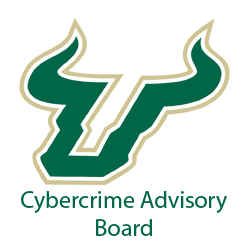
Cybersecurity in the Media
Just as there are downsides to every good thing, the media industry is no exception. Cybersecurity is a growing concern for the media industry. The media industry is constantly evolving, and with that comes many new risks and challenges.
Digital transformation has changed how people consume news, information, and entertainment. This means there are many more ways to access content than ever before, but it also means that hackers have more opportunities to steal sensitive information or damage reputations through social engineering scams.
Content Creation and Cybersecurity
The media industry has a lot to lose. Content is the lifeblood of the media industry, and if hackers can gain access to that content or otherwise disrupt it, then that could mean serious problems for businesses. News organizations are concerned about protecting their intellectual property from hackers who want to steal it and sell it elsewhere on the dark web. Likewise, entertainment companies are concerned about protecting their sensitive information, like scripts and other pre-release content.
This, of course, is a major financial target for opportunistic hackers that wish to make a profit from releasing content early (and potentially disrupting a rival company’s profit margins), or from selling it for a price.
In other words, media companies have a lot to lose if their content is stolen or compromised in any way.
News ‘Trolling’ by Hackers
Another disruption is the potential for hackers to use fake news stories as a way to disrupt the entertainment and media industry. For example, hackers could send out fake tweets or press releases claiming that a company was being acquired by another entity, causing confusion among its investors and shareholders.
Or, if they manage to worm their ways into a news station’s infrastructure, they can put whatever they desire on a broadcast, potentially causing a panic or disrupting the station’s operations. This has occurred in the past: In 2015, hackers broke into a popular Jakarta TV station and broadcast footage of Indonesia’s national police chief dancing in his underwear. The incident occurred during a live broadcast and caused confusion among viewers who had no idea what was going on.
Media Companies Need to Bolster their Cybersecurity
The problem is that media companies are often blindsided by cyberattacks because they don’t have the resources to properly defend themselves. They need to take steps to better protect their infrastructure and their employees from attacks, including:
- Training IT staff on how to prevent cyberattacks and what to do if one occurs.
- Implementing robust security systems, including firewalls and antivirus software.
- Creating a culture of cybersecurity among all employees.
- Creating an incident response plan that clearly outlines what employees should do if a cyberattack occurs.
- Implementing a cybersecurity insurance policy to cover the costs of recovering from a breach.
While these few suggestions are great as a basic starting point, they’re not enough. Companies need to go beyond the basics and do everything in their power to prevent cyberattacks and respond quickly if one occurs. Our experts at Arruda Group can help you create a comprehensive cybersecurity plan that will protect your company from cyberattacks and keep your data safe.




